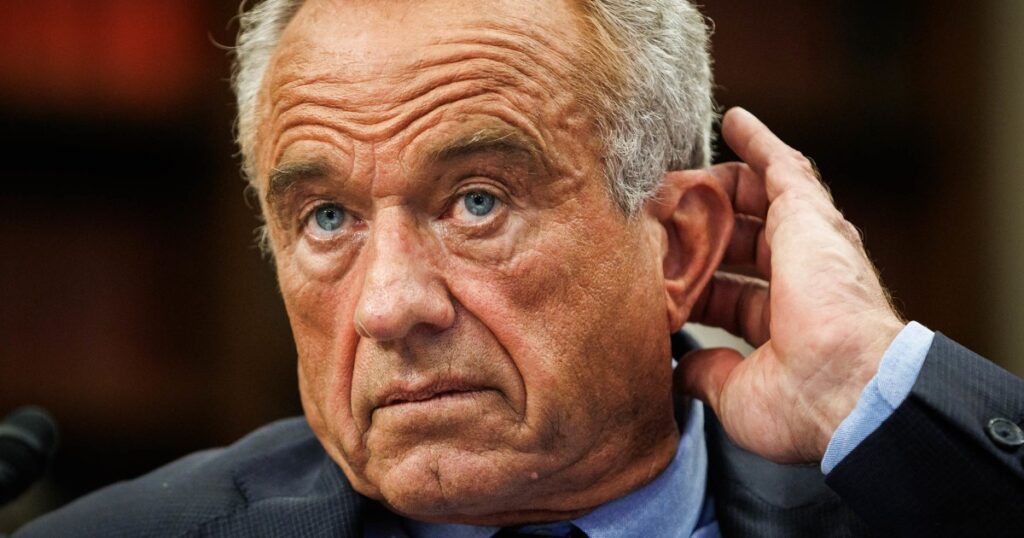WASHINGTON — Health and Human Services Secretary Robert F. Kennedy Jr. is set to testify before the Senate Appropriations Committee on Tuesday, when he is likely to face questions about many of the issues he did during last week’s contentious congressional hearings.
Tuesday’s hearing centers on President Donald Trump’s budget request for the Department of Health and Human Services, but Kennedy is likely to be asked about his vaccine skepticism and support of fluoride bans and the massive DOGE-led cuts to his department.
The White House’s proposal for HHS’ 2026 budget would slash the department’s discretionary funding by 26%, hitting offices like the National Institutes of Health, the Centers for Disease Control and Prevention and the Low Income Home Energy Assistance Program the most. Under the proposed budget, the NIH’s funds would be slashed by nearly $18 billion compared with fiscal year 2025 levels.
Kennedy appeared before the House Appropriations and Senate Health, Education, Labor and Pensions committees last week, when he refused to answer questions about the safety and effectiveness of major types of vaccines.
Asked at the House Appropriations Committee hearing last week whether he would vaccinate a child against measles today, Kennedy paused before he said, “Probably for measles.” Kennedy argued that his “opinions about vaccines are irrelevant.”
“I don’t think people should be taking medical advice from me,” said the top health official.
Asked whether he would vaccinate his child against chickenpox and polio, Kennedy said he did not want to provide advice.
Kennedy has a history of promoting false claims about vaccines, including the measles vaccine during an outbreak. The United States has had more than 1,000 reported measles cases so far this year, according to NBC News data. Kennedy has also promoted unproven treatments for measles and false information about vaccine testing.
Sen. Bill Cassidy, R-La., a physician who chairs the HELP Committee, corrected some of Kennedy’s comments about vaccines last week, describing how they were tested.
HHS is slashing its workforce and reorganizing divisions and offices. It announced in a news release in March that it would cut its workforce from 82,000 to 62,000 full-time employees. The release also announced that the number of divisions and offices would be reduced, a move the department said was intended to “streamline the functions of the Department.”

